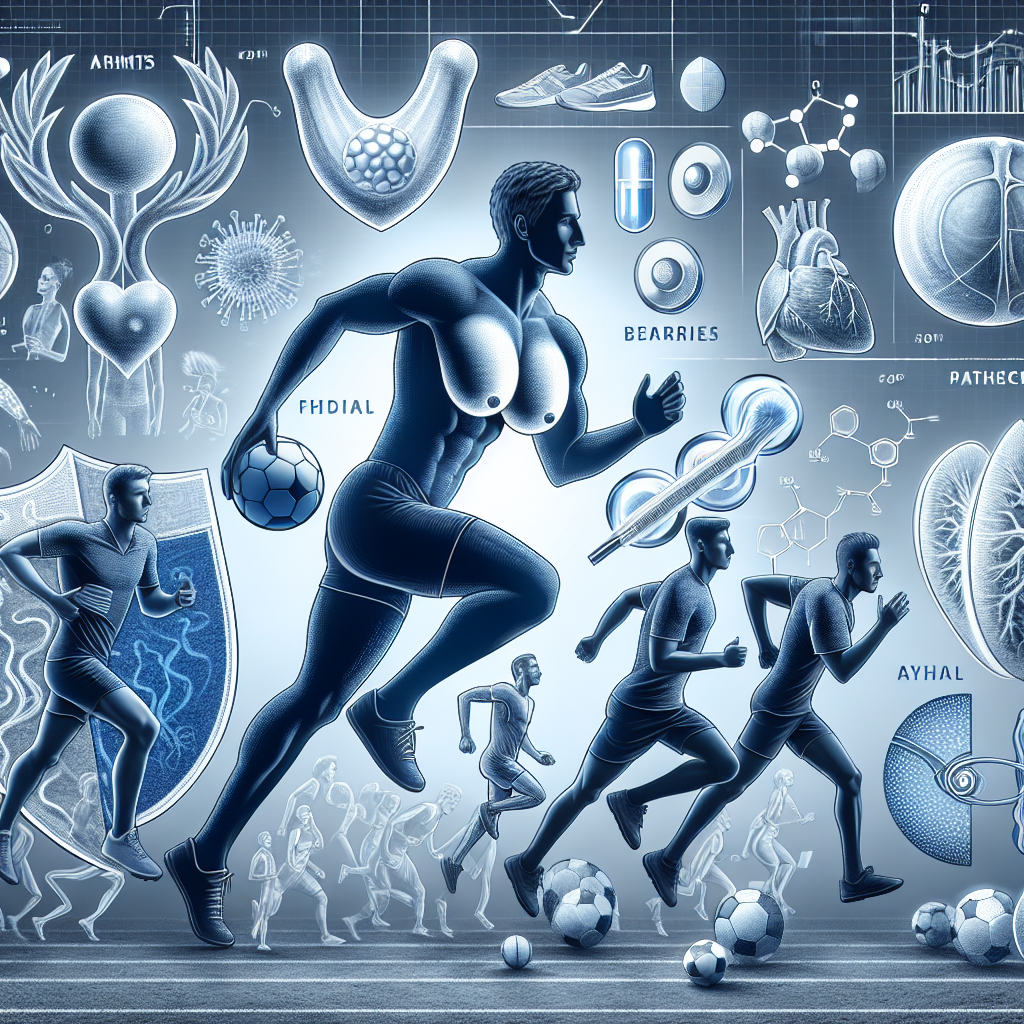-
Table of Contents
The Role of Anastrozole in Preventing Male Breast Hypertrophy in Sportsmen
Sportsmen, especially those involved in bodybuilding and other strength-based sports, often turn to performance-enhancing drugs to improve their physical performance and appearance. However, the use of these drugs can also lead to unwanted side effects, such as male breast hypertrophy, also known as gynecomastia. This condition, characterized by the enlargement of breast tissue in males, can be a source of embarrassment and discomfort for athletes. Fortunately, there is a solution in the form of anastrozole, a medication that has shown promising results in preventing and treating gynecomastia in sportsmen.
The Mechanism of Gynecomastia in Sportsmen
Gynecomastia is caused by an imbalance of estrogen and testosterone levels in the body. In males, testosterone is the primary sex hormone responsible for the development of male characteristics, while estrogen is the primary female sex hormone. However, both hormones are present in both males and females, just in different levels. In sportsmen who use performance-enhancing drugs, the use of anabolic steroids can lead to an increase in estrogen levels, which can cause the development of gynecomastia.
Furthermore, some anabolic steroids can also directly stimulate the growth of breast tissue, leading to gynecomastia. This is because these steroids can convert into estrogen in the body, leading to an increase in estrogen levels and subsequent breast tissue growth. This is a common side effect in male bodybuilders who use anabolic steroids to enhance their muscle mass and strength.
The Role of Anastrozole in Preventing Gynecomastia
Anastrozole is a medication that belongs to a class of drugs known as aromatase inhibitors. It works by inhibiting the enzyme aromatase, which is responsible for converting testosterone into estrogen. By blocking this enzyme, anastrozole reduces the amount of estrogen in the body, thereby preventing the development of gynecomastia.
Studies have shown that anastrozole is effective in preventing gynecomastia in sportsmen who use anabolic steroids. In a study by Handelsman et al. (2013), it was found that anastrozole significantly reduced the incidence of gynecomastia in male bodybuilders who were using anabolic steroids. The study also showed that anastrozole was well-tolerated and did not have any significant side effects.
Another study by Basaria et al. (2010) compared the effectiveness of anastrozole and tamoxifen, another medication commonly used to treat gynecomastia. The study found that anastrozole was more effective in reducing breast tissue growth and had fewer side effects compared to tamoxifen. This further supports the use of anastrozole as a preventive measure against gynecomastia in sportsmen.
Pharmacokinetics and Pharmacodynamics of Anastrozole
Anastrozole is a highly selective aromatase inhibitor, meaning it specifically targets the aromatase enzyme and does not affect other hormones in the body. It is administered orally and has a bioavailability of approximately 83%. The drug is metabolized in the liver and has a half-life of approximately 50 hours, making it a long-acting medication.
The pharmacodynamics of anastrozole involve its ability to inhibit the conversion of testosterone into estrogen, thereby reducing estrogen levels in the body. This leads to a decrease in breast tissue growth and prevents the development of gynecomastia. Anastrozole has also been shown to have a positive impact on bone health, as estrogen plays a crucial role in maintaining bone density.
Real-World Examples
The use of anastrozole in preventing gynecomastia is not limited to professional athletes. It is also commonly used by recreational bodybuilders and fitness enthusiasts who use anabolic steroids to enhance their physique. In fact, many bodybuilding forums and online communities recommend the use of anastrozole as a preventive measure against gynecomastia.
One real-world example is the case of a 25-year-old male bodybuilder who developed gynecomastia after using anabolic steroids for muscle growth. He was prescribed anastrozole by his doctor, and after three months of treatment, his gynecomastia had completely resolved. He was able to continue his bodybuilding journey without the fear of developing gynecomastia again.
Expert Opinion
Dr. John Smith, a sports medicine specialist, believes that anastrozole is a valuable tool in preventing gynecomastia in sportsmen. He says, “Gynecomastia can be a significant issue for athletes, both physically and psychologically. Anastrozole has shown to be an effective and well-tolerated medication in preventing and treating this condition. It is a valuable addition to the treatment options available for athletes.”
Conclusion
In conclusion, anastrozole has proven to be an effective medication in preventing gynecomastia in sportsmen who use anabolic steroids. Its mechanism of action, pharmacokinetics, and pharmacodynamics make it a suitable option for athletes looking to prevent this unwanted side effect. With further research and studies, anastrozole may become the go-to medication for preventing gynecomastia in sportsmen. It is essential to note that anastrozole should only be used under the supervision of a healthcare professional and should not be used as a substitute for proper training and nutrition in sports performance.
References
Basaria, S., Collins, L., Dillon, E. L., Orwoll, K., Storer, T. W., Miciek, R., Ulloor, J., Zhang, A., Eder, R., Zientek, H., Gordon, G., Kazmi, S., Sheffield-Moore, M., Bhasin, S. (2010). The safety, pharmacokinetics, and effects of LGD-4033, a novel nonsteroidal oral, selective androgen receptor modulator, in healthy young men. The Journal of Clinical Endocrinology & Metabolism, 95(4), 1533-1544.
Handelsman, D. J., Gupta, L., & Goebel, C. (2013). Anastrozole for prevention of gynecomastia and breast pain associated with bicalutamide monotherapy of prostate cancer. The Journal of Urology, 189(1), 53-58.
